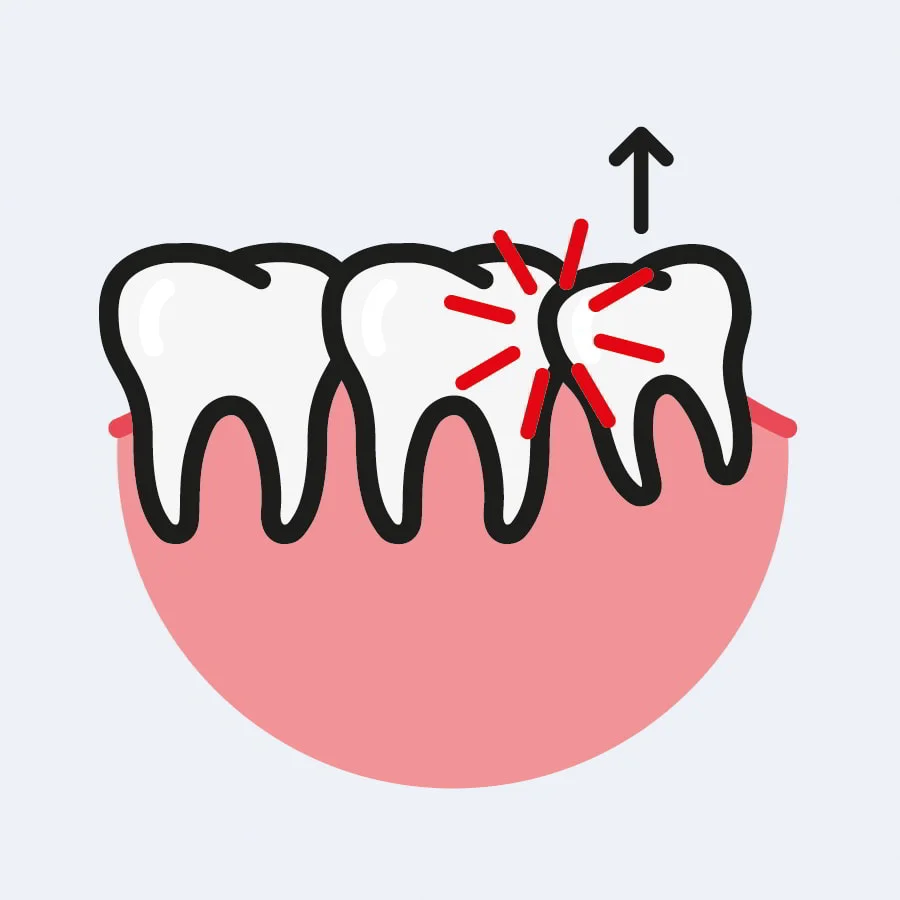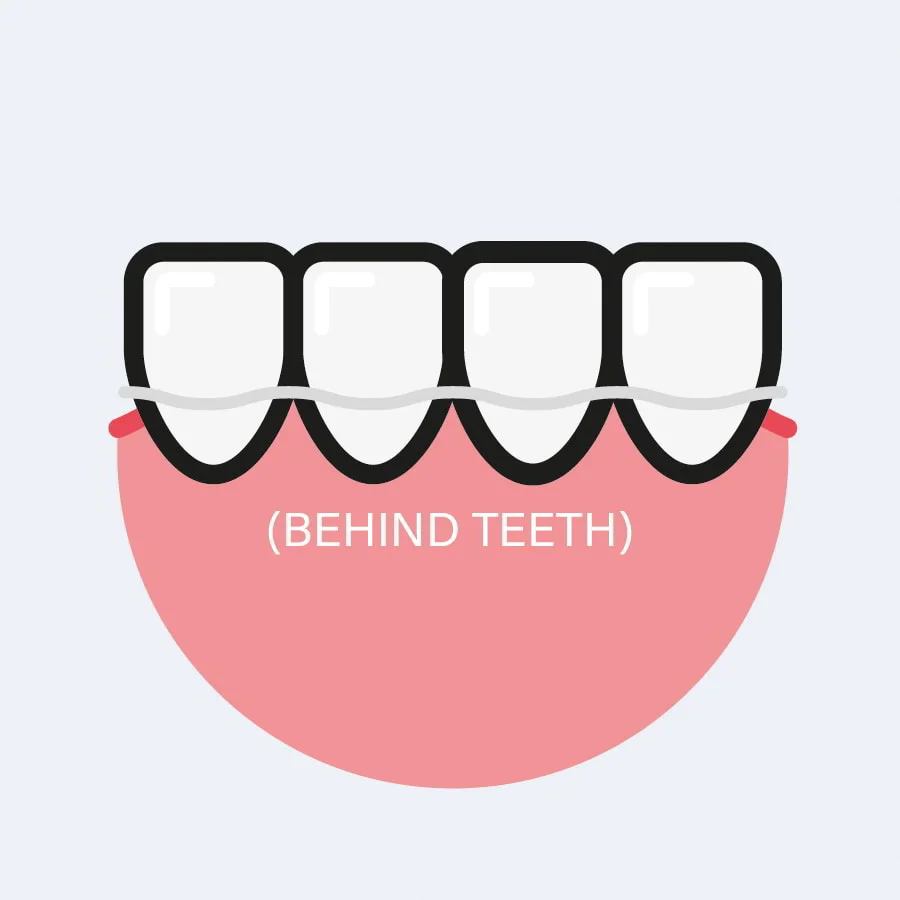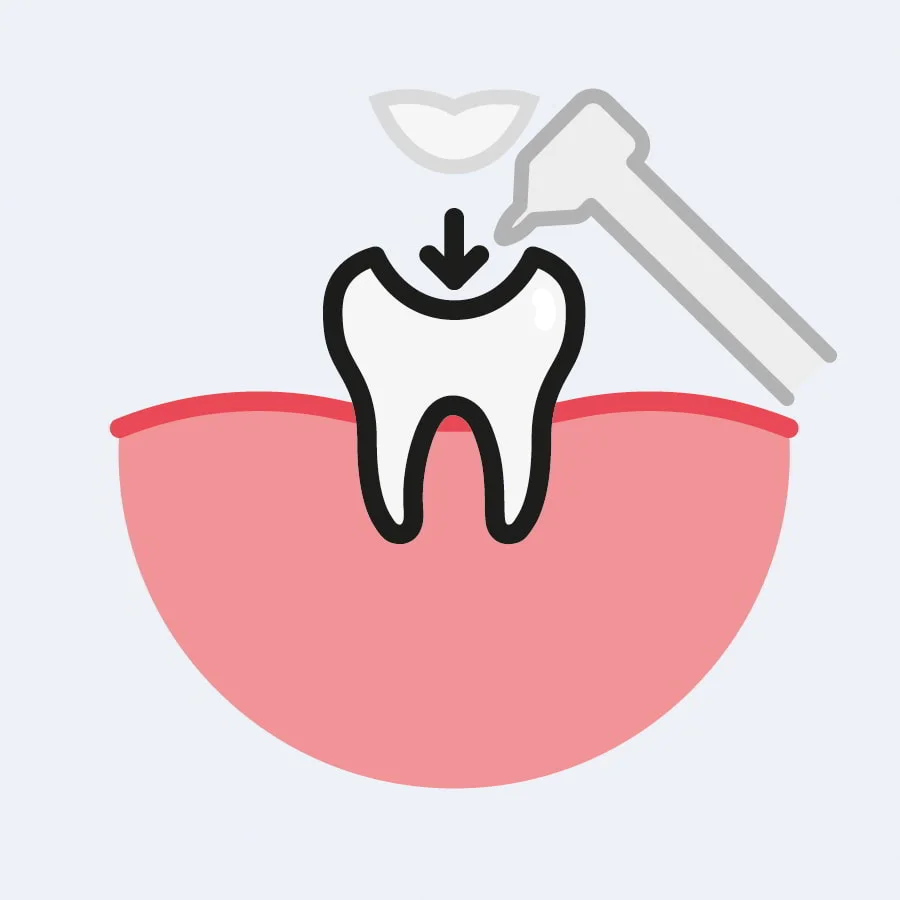Who would need this procedure?
Wisdom teeth are the last teeth to erupt in someone’s mouth, meaning they often struggle for space. This can lead to the wisdom teeth becoming impacted – they may have come out at an abnormal angle, gotten stuck, or have only emerged partially from the gum. Other treatments may also be for wisdom teeth which have started to decay, cause gum disease, or cause abscesses.
Whilst many adults struggle with their wisdom teeth, extraction will only be recommended as a last resort as it is a complicated procedure. If you are experiencing severe pain from your wisdom teeth, speak to your dentist immediately.
What is the next step?
If you’ve been advised to have your wisdom tooth removed, we will need to plan your surgery. An x-ray will be used to confirm the exact position of the impacted tooth in the jaw, and ascertain how complex the surgery may be based on the surrounding areas. Your dentist will then evaluate if it is possible to do at the practice, though you may need to see a specialist oral surgeon who will perform the surgery at the same practice or one of our nearby practices.
Before surgery, the entire process will be explained to you and you will be asked to sign a consent form to ensure you understand the cost, risks, and benefits. We cannot persome your surgery without your signed consent.
What does the surgery involve?
A simple surgery can take as little as 20 minutes to complete, though the length of time needed really depends on how complex your case is. The surgical appointment will begin with a local anaesthetic to numb the area(s) and minimise pain. Once numb, the dentist will begin to rock the tooth back and forth, which will widen the socket and allow the tooth to become loose enough for the extraction.
A small incision into the gum may be required if the wisdom tooth has not fully erupted, or the tooth may need to be cut into smaller pieces, though this will only be required if your case is particularly complex. Due to the anaesthetic, you won’t feel any pain when the wisdom tooth is being removed, but you will experience some pressure when the tooth is being extracted. If you are experiencing any pain during the treatment, make your dentist aware of this immediately.
Your dentist will advise you on what aftercare is required following your treatment, and recovery times may vary depending on what treatment you received.
Complications?
There are potential for complications with any oral surgery, and your dentist will make sure you are completely aware of the risks before having treatment. Smokers are particularly at risk of infection and delayed healing, so it is advised to avoid smoking until you have healed fully. Other complications may include nerve damage and a dry socket. If you experience any issues following oral surgery, contact your dentist immediately.









Patient Reviews








